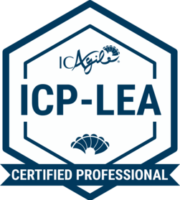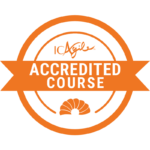
ICP – LEA
Leading with Agility

The “Leading With Agility” course is for ambitious business leaders around the world who want to elevate their leadership skills. This agile leadership course is designed to meet the needs of all types of professionals, whether you are a manager who wants to improve your impact, a business owner who has to navigate a changing market, or an executive managing team in an environment that’s dynamic. This ICP-LEA course is for you if you want to embrace agility and drive innovation in Global business.
Coach2reach India is one of the top training providers. So join with us now!

Upcoming Training – ICP LEA
| Type & Delivery | Mentor | Date | Cost & Registration |
|---|---|---|---|
| Mentor-Led & Online / Virtual | Nagendra Nyamgondalu | April 22-25, 06:30 PM - 10:00 PM IST (Weekday, 4 Sessions, 3.5 hrs each day) | Limited Offer OFF ₹19999 Enroll Now |
| Mentor-Led & Online / Virtual | Dr. Owen Fernandes | April 26-May 04, 06:30 PM - 10:00 PM IST (Weekday, 4 Sessions, 3.5 hrs each day) | Limited Offer OFF ₹19999 Enroll Now |
Why Is the ICP-LEA Certification a Must-Have?
- Navigate Complexity with Ease: Learn to master the art of agile management and navigate the Global market with ease. Learn to be agile in order to innovate, adapt and make strategic business decisions.
- Lead High-Performing Teams: Learn how to lead high-performing teams. Discover ways to inspire peak performance, cultivate collaboration and empower your team members. Create a culture of success that delivers tangible results, and exceeds expectations.
- Drive Innovation and Market Advantage: Unlock your creativity to stay ahead of the market and innovate. Discover proven methods to encourage innovation, thinking outside the box and seizing new opportunities in the ever-changing global and local business landscape.
- Harness the Power of Diversity and Inclusion: Use the Power of Diversity and Inclusiveness: Learn inclusive leadership techniques that encourage engagement, harness collective strength, and foster culture of belonging.
- Influence Change and Transformation: Influence Change and Transform: Develop skills to drive and initiate successful organizational transformations in the Global context. Lead your team to success, inspire others and make a lasting impression.
Benefits of the Agile Leadership Course:
- Thrive In Local & Global Markets: Gain an edge in the competitive market by developing agile leadership abilities designed specifically for you. In this dynamic environment, adapt quickly to market changes, seize opportunities and lead with confidence. Stand out as a leader who drives growth and fosters resilience in an ever-changing world.
- Learn how to drive business success: Discover strategies that will help you accelerate growth, achieve innovation and sustainable results. Learn how to solve complex problems, make informed decisions, and propel your business to success.
- Foster Effective Collaborative Excellence: Learn techniques to promote collaborative excellence in your teams. Cultivate an environment of open communication, trust, and diversity to empower your team and help them achieve their collective goals.
- Improve Leadership Impact: Develop an impactful leadership style. Develop your ability to motivate and inspire others. This will help you create high-performing teams and drive positive change.
- Extend your Professional Network: Connect to a diverse group of professionals from different industries and sectors. Create valuable relationships, share insights, and join a community of professionals who are committed to learning, career growth, and development.
Testimonials
Popular Courses
- ICP ACC – Agile Coaching
- ICP ATF – Agile Team Facilitation
- ICP BAF -Business Agility Foundations
- ICP CAT – Coaching Agile Transformations
- ICP ENT – Enterprise Agile Coaching
- Training From Back of the Room – TBR Certification
- ICF Professional Coaching
- ICF ACC Core Coaching Competencies
- ICF Team Coaching Competencies
- OKR Certification
- Emotional Intelligence in Leadership
- Leading SAFe – SA Certification
- CTC Mentoring
- ICF Mentoring
- NLP master practitioner
- Neuro Linguistic Programming Course

ICP LEA Course Highlights:
- Engaging Workshops: Immerse yourself into interactive workshops, engaging discussion, and practical exercises which simulate real leadership scenarios specific to Global markets.
- International Facilitators of Highest Quality: You will learn from renowned industry experts, accomplished leaders and business professionals who have mastered the challenges and opportunities unique to their industries and are well versed in its impact on success.
- Strategies that Work: You will leave with tools, frameworks and strategies tailored specifically to the Global business environment. You can immediately put your new knowledge into practice to make a difference.
- Networking: Build meaningful connections with professionals from a variety of backgrounds, grow your network and collaborate on a regular basis.
- Certificate of Completion : Upon successful completion of the course, you will receive a prestigious ICAgile certification demonstrating your commitment to agile management within the Global business environment.
1. WHY AND WHAT OF LEADING WITH AGILITY
1.1. New Organizational And Leadership Capabilities We Need Today
1.1.1. Organizational Agility Capability
For much of the 20th Century, organizations were optimized in order to maximize efficiency and production by utilizing economies of scale. To survive and remain relevant, organizations must optimize their processes for increased innovation and rapid learning. Examples of effective capabilities used for agility are:
- A culture of innovation: An organizational mindset that encourages exploration and seeks new ideas, as well as a cross-functional capability to spark, develop, and implement them quickly.
- A nurturing collaborative environment: A place where employees are inspired and can create and thrive.
- Ability to adapt continuously: The ability of a company to respond adaptively to external conditions that are rapidly changing, such as the ability to evolve continuously value streams, products, and strategy. Continuous adaptation goes beyond incremental improvements of discrete processes and includes broader, more enterprise-wide changes.
- Organizational learning and sense making: A systemic ability to sense an unfiltered and often chaotic external environment, and then synthesize diverse perspectives into coherent stories capable of driving policy, innovation, and decisions. Leadership has traditionally instructed the rest of an organization. In a learning organization, it is the rest of an organization that instructs the leadership.
- Continuous engagement: The capability to remain engaged and aligned, even when internal and external conditions are constantly changing. When conditions change, signals are unpredictable, and structures are dynamic, relying on fixed communication paths for efficiency is no longer sufficient.
1.1.2. Why Agility in Leadership is Needed
Organizations must undergo transformation to meet the demands of our modern world. In order to lead our transformed organizations effectively, we also need to transform ourselves as leaders. Leadership and management techniques developed for efficiency-focused and production-focused organizations are not appropriate for leading learning organizations and cultivating innovative culture. The transformation is never-ending and continuous. There is no final state, but the organization is constantly improving and evolving.
1.2. Behaviors That Increase Agility
1.2.1. Understanding Power & Influence
There is a distinction between the authority that comes with a title, and the power to influence through other means. Understanding the context is crucial to determining the best style of influence and power.
1.2.2. Leadership Styles
Leaders often link effective leadership to certain leadership styles. Even though a leader may have their own dominant style, agile leaders understand the need to adapt and change styles based on the situation It is also important to be aware of the impact that certain leadership styles have on the goal to cultivate agility and a culture of innovation.
2. DEVELOPING PERSONAL AGILITY
2.1. Developing Self As Instrument
2.1.1. Self-Awareness & Self-Management
Self-awareness is the ability to recognize one’s own emotions and their impact on behavior. Self-awareness is also the ability to recognize and adapt to different situations. Self-management is the ability to use insights from self-awareness in order to act with intention and leadership.
2.1.2. Mindfulness
The ability to be mindful is to stay focused in the moment, and absorb everything around you as well as your own feelings and thoughts. We can act more effectively when we are fully aware. It also allows us to take calm, thoughtful decisions without being reactive.
2.1.3. Growth Mindset for Leadership
It is important to believe that you can grow personally and professionally. Then, examine and improve your patterns of thinking, feeling and behavior. We can learn new mental and emotional abilities.
2.1.4. Personal Purpose and Values
Leaders who lead with purpose and values that are aligned with their own will be most effective. First, one must reflect on and identify their own values and purpose. It helps leaders to lead from a position of authenticity in terms of how they align with the organization’s mission.
2.2. Developing Self As Leader
2.2.1. Assessing Yourself as a Leader
Leadership development is dependent on the ability to evaluate oneself using different measures.
2.2.2. Skills of Self Development
Leader development has traditionally been viewed as a “nice-to-have” rather than a necessity. Research is showing that there’s a strong correlation between personal development and organizational effectiveness.
2.2.3. Mental Models
Mental models are deeply-ingrained beliefs, assumptions, and stories that we have about ourselves and our world. Agile leaders are constantly examining and uncovering their mental models and those of others. They recognize that other people have different experiences of situations and can be radically different. We cannot assume that everyone has the same frame of reference.
2.2.4. Committing to and Practicing Agile Values
As part of their personal leadership journeys, agile leaders must serve as role models for the values that they want to see instilled within their organizations.
3. DEVELOPING RELATIONSHIP AGILITY

3.1. Introduction To EQ: Social Context
3.1.1. Emotional Intelligence in Relationships
Emotional intelligence is also a term that refers to a person’s ability to manage relationships and social awareness. Social awareness is the ability of a person to empathize and sense another’s feelings. Relationship management refers to the ability of a person to interact with others based on what is best for them or their relationship, rather than interacting based on one’s emotions or habits.
3.1.2. Thinking About Organizations as Human Systems
Agile leaders who are effective must understand that organizations are multi-leveled systems of people. People’s roles in organizations can be complicated by their participation in multiple sub-systems and systems. Leaders must be aware that policies and decisions that may seem perfectly reasonable in one context can have unintended consequences or cause conflict in another context.
3.2. Exercising Agility In Key Conversations
3.2.1. Conversations as the Key Vehicle of Communication in Agile Leadership
In leadership courses, communication skills are often emphasized as a one-way exchange. The goal is to make the communication effective enough so that it’s fully accepted. Conversations, by definition, are at least two-way exchanges and are the primary communication method for agile leaders. It is important to note that this means a wide range of viewpoints will be expressed, and a meeting of minds can occur. It is important to ensure that conversations are of high quality.
3.2.2. Telling Compelling Stories as a Leader
Storytelling is an important leadership skill – it inspires and makes a message relatable and personal. Storytelling and communicating intent are also aided by the careful use of metaphors and an understanding of how language can be used to convey power.
4. LEADING TO AGILITY
4.1. Organizational Transformation And Agility
4.1.1. The Nature of Organizational Transformation
The organizational transformation is different from other, more limited change initiatives. Transformation teams often confuse organizational transformation with a series of limited change initiatives.
4.1.2. Why Transformation is needed for Agility
The development of organizational agility requires radical systemic and radical changes to achieve the required capabilities.
4.2. Leading Change And Transformation
4.2.1. Leading from the Future and the Larger Context
Paraphrasing a famous quotation, you get what your attention is focused on. You get the same result if you focus on the present. You are more likely to achieve something new if you look at the future. As Peter Senge has written, “It’s not what the vision is, it’s what the vision does.”
4.2.2. Leading vs. Managing Change
Some people say that while you cannot manage change, but you can lead it effectively.
4.2.3. Leader as Agent of Transformation
Leaders are only as good as their own willingness to lead. They must see themselves as agents and role models of the change they want to bring about in an organization.
Do not miss the opportunity to become an agile leader. Limited spots available. “Reserve your spot now!”
Related Courses:
FAQs – ICP LEA Leading with Agility
Popular Tags:
ICP LEA Certification, Leading with Agility, ICAgile ICP LEA Course, Certified Agile Leadership, Leadership Style of an Agile Leader, Characteristics of Agile Leader, Becoming an Agile Leader, Certified Agile Leader, agile leadership, Lean agile leadership, What is agile leadership, business agility leadership.


